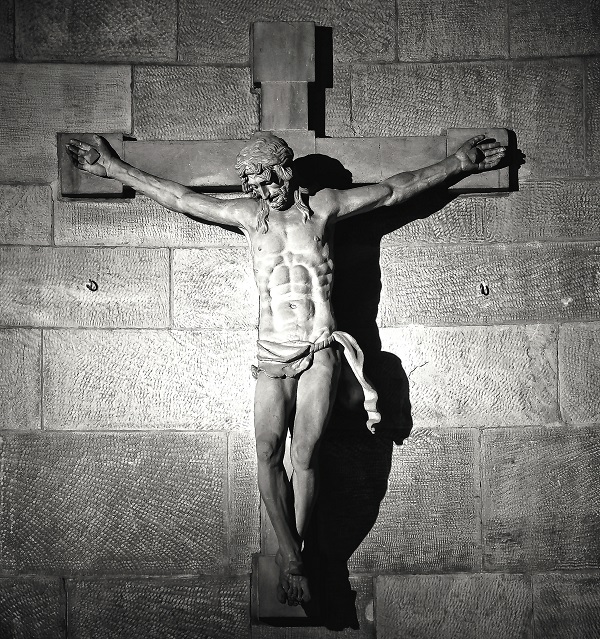The Land of Crouching Tiger, Hidden Dragon

Humbleness can experience reversal
Looking at the characters presented in 1 and 2 Samuel (the original text is one book), whether it is Samuel, Saul or David, they are constantly changing, but God’s sovereignty remains unchanged. In addition to the importance of God’s immutability, God’s election is also present throughout the book—He chose Samuel, Saul, and David according to His will. Taking a closer look at several characters in the book, one will be surprised - when God's sovereignty intervenes, it immediately reverses the situation of the world, confirming that "History is His story":
‧ Hannah, who was barren, became a happy mother with many sons;
‧ The two sons of Eli, who were of prominent birth, died in humiliation;
‧ Saul, who was just looking for a donkey, was anointed as the first king of Israel;
‧ David, an unknown shepherd boy, was anointed as the most important king of Israel.
This theme of "reversion" echoes the song his mother taught Samuel:"He who was barren gave birth to seven sons; but he who had many children decreased. The Lord causes death and gives life, brings people down to the grave and ascends them up. He makes people poor and he makes them rich, It humbles and ennobles.” (Refer to 1 Samuel 2:5-7)It also verifies what the poet said:"For exaltation does not come from the east, nor from the west, nor from the south. But God determines; he brings low the one and exalts the other." (Psalm 75:6-7)
The most surprising of these four reversals is that David, a shepherd boy in Bethlehem, became the most important king of the United Kingdom of Israel; Bethlehem, "the smallest among the cities of Judah," became the place where David crouched, hiding a dragon! It turns out that native background cannot hinder God’s actions. As long as God is involved, humble places and people can experience complete reversals!
Samuel asked Jesse, "Are all your sons here?" He replied, "There is still a younger one who is tending the sheep." Samuel said to Jesse, "Send someone to call him." His face was bright. Red, with delicate eyes and handsome appearance. "This is he," said the LORD, "get up and anoint him." So Samuel took the horn of anointing oil and anointed him among his brothers. From that day on, the Spirit of the Lord came powerfully upon David. (Refer to 1 Samuel 16:11-13)
David asked those standing by, "What shall be done to the man who killed this Philistine to take away the disgrace of Israel? Who is this uncircumcised Philistine? How dare he defy the living God?" Is the army shouting in battle?" (1 Samuel 17:26)
From the key figures who led the two major revivals of the Puritans in the United States, we can also testify that any background can lead to crouching tigers, hidden dragons.
Both Jonathan Edwards and John Wesley were born into pastoral families, and the former was once a high-ranking university student at the University of New Jersey, the predecessor of Princeton. However, George Whitefield, who spoke like a fierce lion, was born in a single-parent family and spent his childhood with drunkards and swindlers; and he brought the Great Awakening initiated by Edwards and Whitefield into remote and vast America. Francis Asbury in the West came from a poor family, and his father was just a gardener; Charles Finney, the father of modern revival who ignited the Second Great Awakening, was just a farmer; Peter Cartwright, a pastor in the wilderness, Since he was a child, he was often ambushed by Indians during his journey westward to the barren land, so he dared to use guns to scare off bandits and protect the preaching venue. The most influential preacher in the United States in the 19th century, DL Moody, who only went to fourth grade in elementary school, had a highly contagious preaching style that was honed in the slums of Chicago.
It is true that “God saved us and called us with a holy calling, not according to our works but according to His will and grace.” However, after being called, the key to whether we are “able” to be used by God is whether we are “willing” or not. After being saved, prepare yourself to become a “noble vessel, holy, and suitable for the Lord’s use.” There is always a place for strange things, so don’t worry about no market!
This David, who was born and raised in humble Bethlehem, was originally ignored (or even despised) by his parents, brothers, and even the prophet Samuel. As soon as he stepped onto the biblical stage and was anointed by Samuel, he immediately attracted the attention of the people of Israel (and us). eyes, and pushed the history of Israel to the highest peak of the United Kingdom. It is truly an unprecedented legend!
From his life, we can extract three secrets of a victorious life and provide them to the unknown children of God (such as David who was shepherding sheep in Bethlehem). They can experience what the song of Hannah sings: “He lifts up the poor from the dust; Lift up the poor from the dunghill, make them sit with the prince, and obtain the seat of glory." A reversal of life.

David was able to defeat Goliath with a rock from the creek because he developed his "divine vision", courage, and leadership while submerging.
deeper hidden
The first half of life prepares for the second half of life. Before David defeated the giant Goliath, "Chinese" and "Martial" were equipped to become the "wonderful goods" of the Kingdom of God.
From the "text" point of view, a very high proportion of the Psalms are from David, especially Book 1 of the Psalms, including the 23rd Golden Psalm. During his time as a shepherd, he often sang hymns to praise and experience God. Therefore, when Saul was troubled by demons, he could play the harp and sing hymns to "drive out the demons."
From the perspective of "martial arts", David has developed his own worldview from the perspective of God. Therefore, when faced with the huge and powerful Goliath that everyone was frightened by, he was able to use his unique "divine vision" to say things that others could not say. Declare:
"Who is this uncircumcised Philistine? How dare he defy the army of the living God?" (Refer to 1 Samuel 17:26)
“You come against me with swords and spears and with bronze halberds; I come against you in the name of the Lord of hosts, the God of the armies of Israel, whom you have reviled in anger… The victory or defeat of the battle belongs to the Lord. He is his. You will be delivered into our hands.” (Refer to 1 Samuel 17:45, 47)
This "divine eye" and courage have been tested in the fields of Bethlehem:"Your servant was tending his father's sheep, and sometimes a lion or a bear came, carrying a lamb from the flock. I would chase it, smite it, and rescue the lamb from its mouth. When it rose up to harm me, I would Take it by its beard and smite it to death. Your servants have killed lions and bears, so this uncircumcised Philistine will be like the lion and the bear who rebelled against the armies of the living God.” (1 Samuel) 17:34-36)Therefore, as soon as he stepped onto the battlefield, the plot immediately reversed: Goliath fell instantly, "the warrior's bow" was indeed broken, and "those who contend with the Lord" were indeed shattered!
In the future, whether in regular battles with the Philistines, guerrilla battles with the Amalekites, plain battles with the Syrians, or siege battles with the Ammonites, David was able to defeat all enemies - this "divine eye", His courage and leadership skills were already practiced and prepared during his Crouching Tiger, Hidden Dragon period!
Just like before Moses led the Israelites out of Egypt, the wilderness and Mount Sinai were his place of crouching tigers and hidden dragons; before Elijah challenged Ahab, his "divine eyes" uniquely experienced the obedience of nature (crows carrying meat) Supernatural God, the brook Cherith became the place where the prophets crouched, hidden dragons! Children of God must remember: There is always room for strange things. Don’t be afraid that there is no room for development. Before work, marriage, and service have yet to emerge, learn the tempering and tempering hidden deeply in the Lord in the "Bethlehem" period of life. growing up!
Are you and I still in the Bethlehem of life? How does God allow us to renew our whole being in submergence? Perhaps some believers think that only by doing (big) things for the Lord can they grow and be considered a good Christian. However, in the period of “nothing to do” given by God, perhaps the worker must first be molded as a person. Even in the land of crouching tigers, hidden dragons, God can still do wonderful things in people.
Looking up more thoroughly
After it is recorded that David killed Goliath, the context of 1 Samuel reaches a turning point in chapter 18: "When David had finished speaking to Saul, Jonathan's heart was in harmony with David's. Jonathan loved David loved his own life..." From then on, the spotlight on the stage shifted from Saul to David: All Israel and Judah loved David, Saul's second daughter Michal loved David, and the king's servants loved David... ...The women danced and sang, "Saul has slain thousands, and David has slain ten thousand." This only fueled Saul's jealous heart. From then on, David was hunted by his workplace boss until Saul died among the Philistines. So far!
Proverbs is right: "Jealousy is rottenness in the bones", "Only jealousy, no one can resist"; it is even more difficult for kings to resist the fire of jealousy. King Herod wanted to kill the incarnate Jesus because of this fire, resulting in A baby boy under two years old was innocently murdered in Bethlehem. In order to prevent this serious problem from becoming a threat to the throne, Saul used the marriage of his daughter Michal as bait. Unexpectedly, David easily fulfilled the conditions and won Michal's love. The "plot" failed, and Saul even more Afraid of David. Even in his anger, he tried to kill his son Jonathan, who was a good friend of David and did not care whether he could inherit the throne. Ahimelech, the priest of Nob, was massacred by Saul because he helped the fleeing prince consort. !
However, David, who was reduced to a wanted criminal and was on the run, did not give up on himself, nor did he fight evil with evil. He complained to his God about his grievances, and difficulties and persecutions became a stepping stone for him to experience God's protection. The most rare thing is that David, who has made great contributions in both defense and diplomacy (Goliath's cry of war) and spiritual bondage (demon interference), twice was able to carry out the "transformation" that is common in human politics. "Justice" opportunity, he easily let go of Saul who wanted to kill him, and he still blamed himself for cutting off the king's clothes, and always regarded Saul as Jehovah's anointed one!
Readers cannot help but ask: Where did David develop such a broad mind and learn to look up so completely? The answer is Bethlehem Fields. When his father gathered his brothers to be anointed in front of the prophet Samuel, he was left out and he had already learned in the sheep pasture, "You are my God, and the affairs of my life are in your hands." Bethlehem was his spiritual place. !
How can you and I live a life of complete hope in our families, workplaces, churches, and neighborhoods? Could it be that because of the accumulation of understanding and experience of God during the latent period, we can be "firmly dependent and have perfect peace"? But what to look up to? Is it something that God will ultimately accomplish, or is it a process in which we will know and experience His attributes? Probably all. In the land of crouching tigers and hidden dragons, know Him from His words, experience Him in the process of waiting, and look forward to the fulfillment of His promises when "the fig tree does not flourish and the vines bear no fruit."

Complete mercy and justice were accomplished on the cross, turning a humble life around.
more complete mercy
"Only those who have never been hurt laugh at the wounds on others."(Shakespeare, "Romeo and Juliet") On the contrary, 2 Corinthians 1 reminds us that those who have been comforted by suffering can comfort those who endure such suffering. During his escape, David became a source of warmth and comfort to 400 people on the margins of society, including "all those who were in embarrassment, in debt, and distressed." In the late stages of his escape, he and his followers' wives and children were kidnapped by the Amalekites. The house leaked and it rained all night. His personal family and leadership encountered an unprecedented crisis, but they were resolved by trusting God.
What’s even more special is that after defeating the Amalekites and rescuing the captive people and wealth, they also formulated the principle of equality of “those who go into battle will get as much as those who guard the equipment.” Compared with using the best soldiers in the country, Saul, whose troops came to hunt him, especially showed his compassion for the 200 men who were too tired to go into battle.
When Saul and his three sons died on Mount Gilboa, David did not rejoice. Instead, he wrote a lament for Saul who had persecuted him. Afterwards, Saul's captain Abner came to seek refuge, but David ignored him. Even the two army commanders who had killed Saul's son Ishbosheth to claim credit were executed by David. David paid attention to Mephibosheth, the son of Jonathan, and returned to all the fields, because he was an orphan from the house of Saul; he took back Michal, who had mocked him, as his wife - she later despised David's dance to welcome the ark into the city. -Because she is Saul's daughter. David's various incredible acts of mercy did not involve any reckoning after Saul's death. Where did he learn this? Could it be that he was in the fields of Bethlehem where his original family decided that he was not worthy of being anointed?
In the face of a chaotic environment, the "compassion" that believers often talk about seems to be pushed aside by "justice," as if mercy will lead to tolerance and tolerance of sin. Is that really the case? What mercy have you and I ever received? What kind of fruit of compassion can be produced in the family, workplace, church, and neighborhood?
When we are despised and rejected, can we imitate the descendants of David, who were born in Bethlehem, and ended up with an enviable posture of "no form or beauty", replacing the guilty status with innocence, and were hung on the tree? With his last breath, he prayed for those who had insulted him: "Father, forgive them!" The Savior who bore our sin, pain, and shame—Jesus Christ? The cross is a place of crouching tigers and hidden dragons. Here, "you killed the Lord of life, but God raised him from the dead." "The stone that the builders rejected has become the corner stone."
It is precisely because of the complete mercy of the Lord of life that through the cross, a humble life can experience a reversal in life and be justified!I pray that the cross will become a place where you and I are crouching, hiding dragons, and the lives that the world considers humble will experience a transformation in our lives because of our actions of justice and love of mercy.
“God is able to do exceeding abundantly above all that we ask or think, according to his power that works in us. To him be glory in the church and in Christ Jesus throughout all generations, forever and ever Far away. Amen!” (Ephesians 3:20-21)
 Wu Xianzhang received a master's degree from the Institute of Civil Engineering at National Taiwan University and a Ph.D. in theoretical applied mechanics from the University of Illinois. He later switched to studying theology and received a master's degree in divinity and a doctorate in Old Testament theology from Trinity Theological Seminary in Chicago. Currently, he is professor of Old Testament, director of the Doctoral Department of Pastoral Affairs, director of the Doctoral Department of Mission, and CEO of the Pastoral and Mission Research Center at China Evangelical Theological Seminary.
Wu Xianzhang received a master's degree from the Institute of Civil Engineering at National Taiwan University and a Ph.D. in theoretical applied mechanics from the University of Illinois. He later switched to studying theology and received a master's degree in divinity and a doctorate in Old Testament theology from Trinity Theological Seminary in Chicago. Currently, he is professor of Old Testament, director of the Doctoral Department of Pastoral Affairs, director of the Doctoral Department of Mission, and CEO of the Pastoral and Mission Research Center at China Evangelical Theological Seminary.
Professor Wu has written numerous books, whether they are commentaries, sermons, character studies, or reflections on important issues. He always keeps the church and believers in mind, and presents the essence of biblical theology with a caring eye. His words contain theologians, The playwright and novelist's timeless insights, passion and earnestness penetrate the back of the page, and reading his writing is like seeing the person himself.

